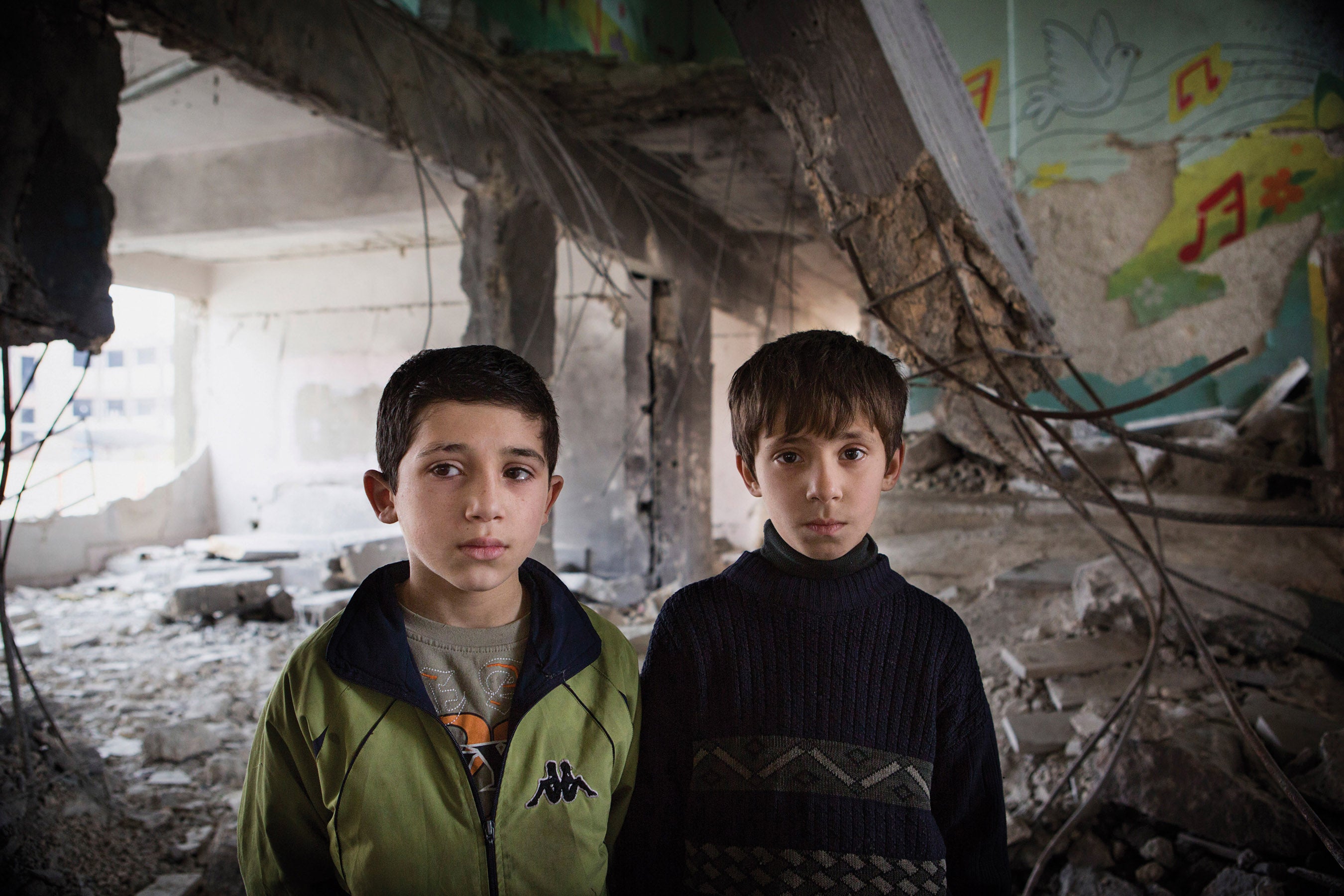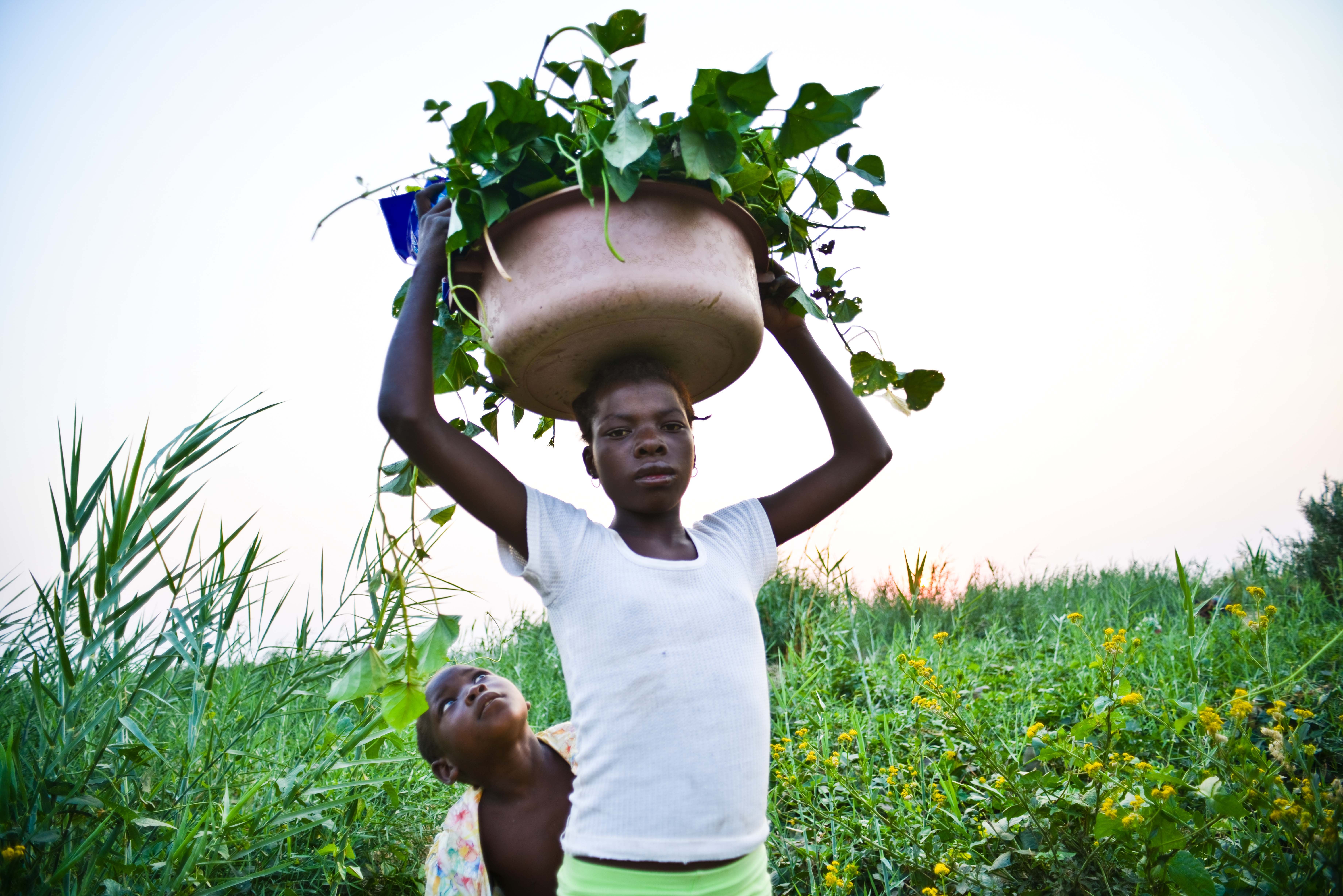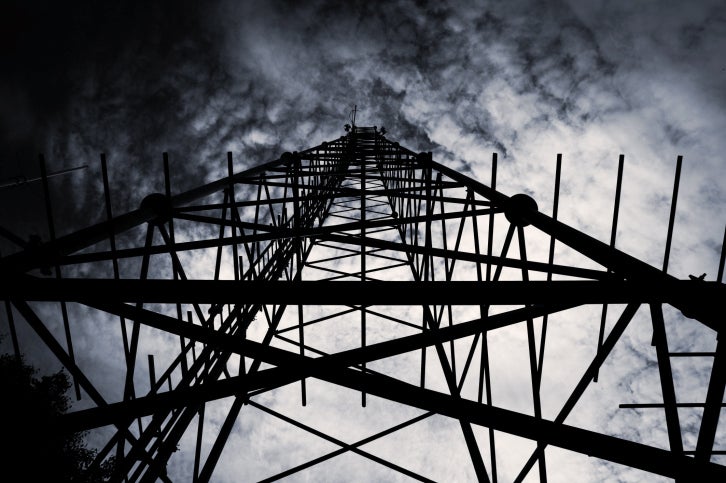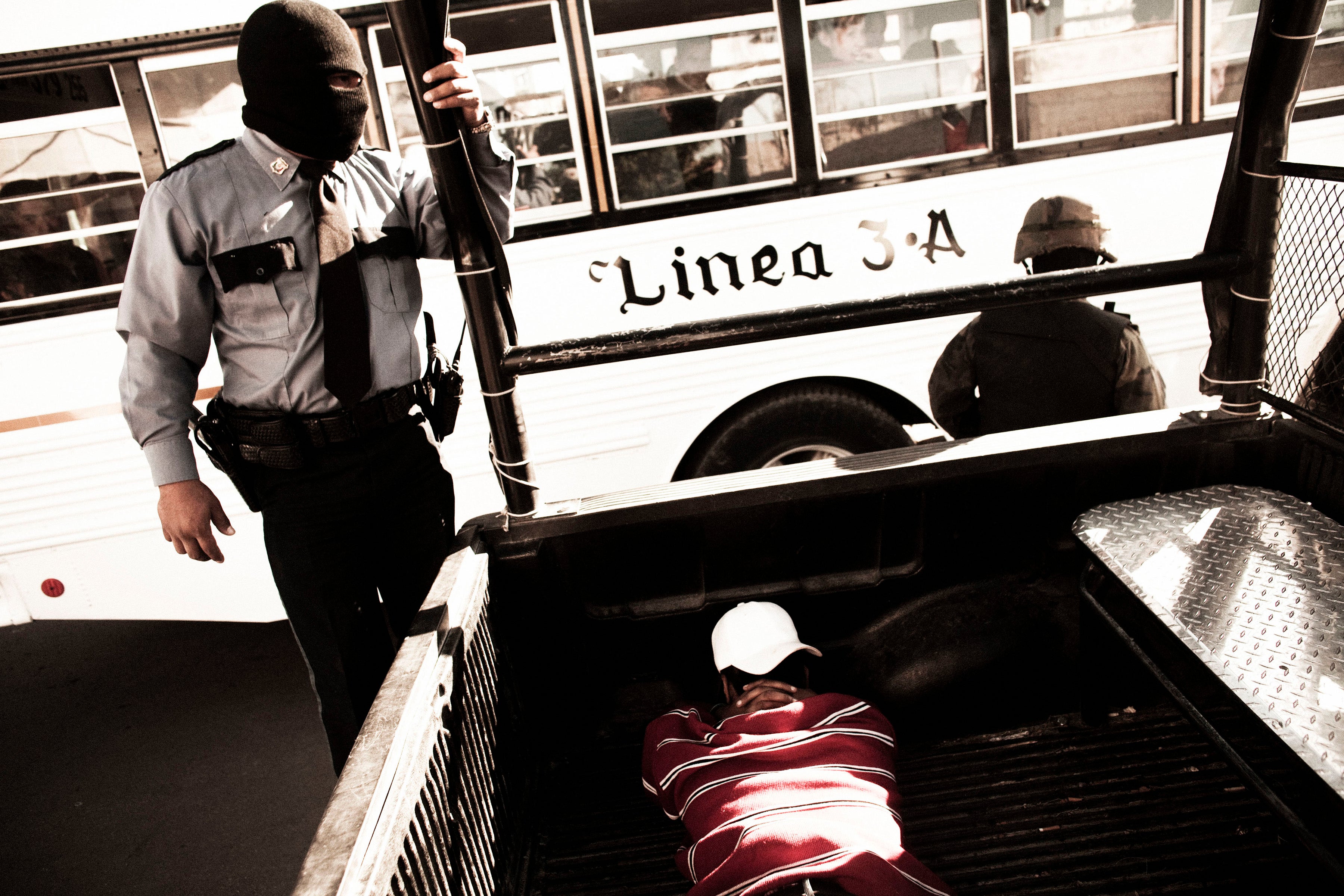The administration of President Sebastián Piñera has taken several important steps to strengthen human rights. Since September 2010, it has ended the jurisdiction of military courts over civilians, reformed some of the most objectionable parts of counterterrorism legislation, and promulgated a law to provide redress for LGBT individuals who suffer discrimination.
However, current laws continue to allow military courts to exercise jurisdiction over alleged human rights abuses committed by the Carabineros (police responsible for public order and crime prevention), and vague counterterrorism legislation remains subject to arbitrary enforcement. Police sometimes use excessive force when responding to public protests.
While courts continue to prosecute individuals for abuses committed during the Augusto Pinochet dictatorship (1973-1990), the Supreme Court has used its discretionary powers in many cases to reduce sentences against human rights violators, resulting in sentences that are incommensurate with the gravity of the crimes. Abortion continues to be prohibited in all circumstances, even when the mother’s life is at risk.
Police Abuses
Occupations and street protests by students calling for education reform frequently end in violent clashes between demonstrators and police. Public protests are not regulated by law, but rather by a 1983 decree dating from the Pinochet dictatorship that gives wide discretion to local government officials to deny permission for protests, as well as broad powers to the police to disperse unauthorized gatherings.
Carabineros regularly use anti-riot equipment such as water cannons and teargas to break up unauthorized marches. And when violence occurs at authorized marches, the police response is sometimes indiscriminate or disproportionate. The National Institute for Human Rights (INDH—Chile’s human rights ombudsman) noted that while Carabineros had made efforts in 2012 to improve police practices in response to authorized protests, they continued to use excessive force “regardless of the behavior” of demonstrators. Of particular concern in 2013 was Carabineros’ lack of caution in firing paintball rifles at protesters, which they justified as a means of identifying law-breakers. Five people were hit in the eye by paintballs fired by police during a student demonstration in April 2013, one of whom lost an eye.
The executive branch proposed legislation in 2012 and 2013 to criminalize violent conduct in public protests. Some of the measures proposed, such as those outlawing the use of hoods or garments protecting the face against tear gas, would have increased the risk of arbitrary arrest and criminal prosecution of people exercising a legitimate right to protest, but the Senate rejected the proposed legislation in October 2013.
According to the INDH, courts have granted seven petitions since January 2012 asking them to protect individuals’ constitutional rights following alleged abusive actions by police in Mapuche indigenous communities. The courts found that police had been responsible for arbitrary arrest, ill-treatment, and excessive use of force.
Military Jurisdiction
Legislation approved by Congress in September 2010 finally ended the jurisdiction of military courts over civilians, a reform urged by the Inter-American Court of Human Rights in its 2005 ruling in the Palamara Iribarne case. However, the reform left untouched the jurisdiction of military courts over abuses committed by Carabineros against civilians, and at time of writing the government had yet to present legislation to ensure that Carabineros accused of human rights violations are tried by civilian courts.
Military courts, which are composed of military officers on active service, lack the independence and due process guarantees of ordinary criminal proceedings. Investigations are secret, criminal proceedings conducted mainly in writing, and lawyers representing victims of police abuse have limited opportunities to cross-examine witnesses.
However, verdicts by military courts can be appealed to the Supreme Court. In August 2012, the Corte Marcial (military appeals court) revoked the conviction of a police officer responsible for the death of a Mapuche who had been participating in a land occupation, basing its verdict solely on the testimony of the accused—who claimed to have fired in self-defense—and ignoring evidence that showed that the victim had not fired a weapon. On appeal, in August 2013 the Supreme Court rejected the officer’s self-defense argument and gave the officer a commuted sentence of three years for homicide due to unnecessary force (sentences of three years or less can be served without imprisonment).
Counterterrorism Law
In September 2010, following a hunger strike by indigenous Mapuche prisoners held on terrorism charges, the Piñera administration reformed the counterterrorism law. Positive reforms allowed for the defense to cross-examine anonymous witnesses and barred the law’s application to children.
However, the law’s overly broad definition of terrorism continues to allow for the prosecution on terrorism charges of those allegedly responsible for unrelated criminal acts such as arson and the destruction of private property, although judges may later reject terrorism charges as unfounded. In addition, a provision in the law allowing prosecution witnesses’ identity to be kept anonymous makes it difficult for defense attorneys to obtain information relevant to witnesses’ credibility. Although the Piñera administration has invoked the terrorism law against Mapuches engaged in land protests more selectively than its predecessors, the risk of arbitrary terrorism prosecutions remains without clear and appropriate legal criteria for its application.
Prison Conditions
In March 2013, the Ministry of Justice instituted a new data collection system to measure and monitor overcrowding, a chronic problem in Chile’s prisons, among other poor conditions. In July 2013, there were 47,515 prisoners in a prison system with a capacity to hold just 38,088.
Confronting Past Abuses
In an interview prior to the 40th anniversary of the September 1973 military coup, President Piñera acknowledged civilian complicity in abuses under the Pinochet dictatorship, stating that “there are many who were passive accomplices [of human rights violations], who knew and did nothing, or did not want to know.” The chief justice publicly acknowledged that the Supreme Court failed during the dictatorship to act against human rights violations and to protect victims. He announced in September that the appellate judges in Santiago who are responsible for trying perpetrators of abuses committed during the dictatorship would be ordered to dedicate themselves exclusively to these cases.
The chief justice stated in March 2013 that 1,104 cases of human rights violations were under adjudication by the courts. According to the human rights program of the Ministry of the Interior, a party to 837 of these cases, as of September 2013 courts had convicted 355 perpetrators, 262 of whom had received a final sentence. Sixteen of those convicted had held the rank of general in the armed forces or police and 39 had been colonels before retirement. Sixty-six were serving sentences in prison. Nevertheless, as of July 2013, only 33 cases of torture, a systematic practice under Pinochet, were under adjudication, according to the Human Rights Observatory of Diego Portales University, which monitors the progress of trials for dictatorship-era abuses.
In many cases, the Supreme Court has used its discretionary powers to issue lenient sentences against officials who committed serious human rights abuses by arguing that significant time has elapsed since the criminal act. In other cases, the court commuted the sentences of others previously convicted for such crimes. These practices raise concerns about Chile’s fulfillment of its obligation to hold accountable perpetrators of crimes against humanity by imposing appropriate punishments or sanctions.
In September 2013 President Piñera ordered the closure of the Cordillera military prison, one of two built under previous administrations to house military officers convicted of human rights violations. Its 10 prisoners, who were enjoying privileges unavailable to ordinary prisoners, were transferred to Punta Peuco, the other prison for military personnel convicted for human rights abuses.
Reproductive Rights
Chile is one of only four countries in Latin America (the other three being El Salvador, Honduras, and Nicaragua) with an absolute prohibition on abortion, even in the event of medical necessity or rape.
In April 2012, the Senate rejected three bills to legalize abortion in cases in which the mother’s life was at risk or the fetus was unviable. In July 2013, the widely publicized case of “Belén,” an 11-year-old who became pregnant after being raped by her stepfather, brought renewed calls for legislation to allow abortion for rape victims. Belén stated publicly that she wanted to have the baby. However, due to the absolute prohibition of abortion, authorities cannot provide accurate, complete, and unbiased information about reproductive and sexual health to women and girls pregnant from rape, including youth-sensitive and confidential counseling to children. As of November 2013, two new bills to legalize abortion—one for medical reasons, and the other for medical reasons and rape—presented in May and July respectively, were still under consideration in committee in the Chamber of Deputies and the Senate.
Sexual Orientation and Gender Identity
In May 2013, five senators tabled Chile’s first bill to achieve legal recognition of the gender identity of transgender people. The bill would allow individuals to change their name and legal gender on birth certificates and identity cards so that official documents match their gender identity. Discrimination based on gender identity was banned under an anti-discrimination law that entered force in 2012, providing avenues of redress for victims. At time of writing, the Senate was still discussing the bill.
Key International Actors
Following a visit to Chile in July 2013, the UN special rapporteur on the promotion and protection of human rights and fundamental freedoms while combating terrorism stated that the counterterrorism law had been “applied disproportionately against Mapuche defendants,” and recommended that its use in connection with Mapuche land protests should cease. In September, the Committee on the Elimination of Racial Discrimination expressed concern about the “lack of objective legal criteria” for the application of the counterterrorism law in Mapuche cases, which could violate the principles of legality, equality, and freedom from discrimination.
In a landmark August 2013 decision, the Inter-American Court of Human Rights found Chile violated the right to a hearing within a reasonable time of torture victim Leopoldo García Lucero, who was detained five days after the September 1973 military coup. It was the first ruling of the court on the case of a survivor of human rights abuse during the Pinochet dictatorship.
While Chile played a positive role at the Human Rights Council by voting in favor of key human rights resolutions such as those on Sri Lanka, Iran, and Syria, the country could take its positive engagement further by speaking out more often on other human rights situations that warrant UN attention.




